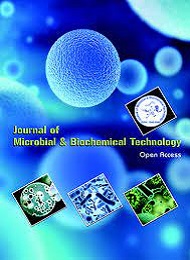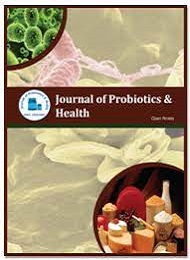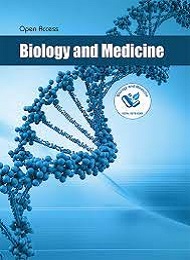Theme: Advancing Research, Understanding & Application
Probiotics 2021
After successful completion of the previous Probiotics 2020, Conferenceseriesllc Ltd officially announcing the 11th International Conference on Probiotics and Prebiotics.
The webinar, Probiotics 2021, takes place on June 28-29, 2021 having the theme Advancing Research Understanding & Application. Probiotics 2021 will continue to provide real-life opportunities to network, learn and engage the participants Join the specialists in a highly interactive environment featuring video-streaming presentations with live Q&A, on-demand sessions, various other activities which will provide countless opportunities to grow in career.
Probiotics 2021 is focusing on all topics related to prebiotics, probiotics, nutrition, and the food industry. The webinar brings together experts, academicians, business professionals, and global leaders to discuss the recent researches and studies in the field to share and gain knowledge. Numerous presentations on probiotics discovery, new product development, and regulation, as well as prebiotics, diet, and nutrition will be presented in Probiotics 2021. This webinar will provide a networking experience in which academic and industry collaborations are forged to translate research into clinical trials and work for the benefit of humankind and explore endless business and research opportunities. Moreover, you’ll have ample opportunity to review poster presentations and meet with exhibitors showcasing the new services and products.
Due to the ongoing global pandemic COVID19 public health emergency, Probiotics 2021 will be organized as an online event from June 28-29, 2021 so that pandemic and global networks cannot stop the learning and networking. Renowned speakers will present their latest research related to prebiotics, probiotics, gut microbiota, digestive health, metabolic diseases, skin health, and Immunity. Have a glance at our detailed program to understand more about each session.
Probiotics 2021 features:
• Plenary lectures & parallel sessions
• Poster sessions
The conference topics are intended to meet the requirements of researchers, scholars, food scientists, healthcare professionals, business professionals, students and open to everyone who wants to continuously update with the latest researches, studies, and development in the prebiotics and probiotics researches around the world. Interested attendees include scientists, nutritionists, dietitians, physicians, researchers, students, policymakers, healthcare professionals, business professionals, and key opinion leaders with an interest in the prebiotics and probiotics field. Probiotics 2021 promotes the creation of a platform for all professionals in the food industry and food scientists and other interested persons to collaborate, network, share their knowledge and increase their growth potentials in their respective fields.
Details of Probiotics 2021 Conference:
Conferenceseries.com organizing Probiotics 2021 Conference as an online event.
| Conference name | Date |
| Probiotics 2021 | June 28-29,2021 |
Why to attend
Probiotics 2021 provides a platform to all the food scientists, researchers, academicians and business professionals determined towards their field to share new researches, knowledge and development in the food sciences to work together for development and benefit of the society. In this you can showcase your researches and find world recognition, gather with best scientist and expert of the field to gain knowledge, can participate in live sessions.
Target Audience
- Food scientists
- Young Research Fellows
- Nutritionist
- FMGC
- Healthcare professionals
- Business professionals
- Physicians
- Policymakers
- Food industry
- Students
- Microbiologists
- Institution Heads
Track1 Preterm and term Newborns Probiotics
Very preterm newborn children are at higher risk of late onset sepsis and necrotizing enterocolitis (NEC), with the related potential for long lasting unfriendly wellbeing impacts or demise. Preterm babies have an alternate gut microbiota than term infants, including decreased species variety, higher quantities of Enterobacteriaceae (including Klebsiella pneumoniae and Escherichia coli) and Clostridium difficile, and diminished quantities of Bifidobacteria and Lactobacilli. These differences might be a consequence of host factors related with immaturity, environmental factor, exposure to antibiotic treatment, less breastfeeding, and prolonged stays in neonatal intensive care units.
Track2 Prebiotics old and new
The prebiotics concept was introduced for
The basic criteria for selection of prebiotics are
- Resistance to digestion
- Hydrolysis and fermentation by colon microflora
- Selective stimulation of growth of one or limited number of bacteria
- Beneficial health effects to the host.
Track 3 Microbiome
The microbiome consists of microbes that are both beneficial as well as potentially harmful. In a healthy body, pathogenic and symbiotic microbiota coexists. But if there is any disturbance in that balance due to infection, diet and antibiotics, body become more susceptible to diseases.
Microbiota stimulates the immune system and breakdown potentially toxic food compounds and synthesizes certain vitamins and amino acids, including the B vitamins and vitamin K. The microbiota of a healthy person will also provide protection from pathogenic organisms that enter the body such as through drinking or eating contaminated water or food.
Prebiotics feed our beneficial microbiota. Although there are supplements containing prebiotic fibers, many healthy foods naturally contain prebiotics. The highest amounts are found in raw garlic, onions, leeks, asparagus, Jerusalem artichokes, dandelion greens, bananas, and seaweed.
Track 4 Formulations and Production
For successful delivery of probiotic benefits to the consumer, several criteria must be met. For manufacturing, an intricate production process is required that ensures both high yield and stability and must also be able to meet requirements such as the absence of specific allergens, which require some obvious culture media ingredients. Reproducibility is important to ensure constant high performance and quality. To ensure this, quality control throughout the whole production process, from raw materials to the final product, is essential, as is the documentation of this quality control. Consumer product formulation requires skill and experience to formulate the final product.
Track 5 Microbiota from womb to adult
Normal microbiota changes during pregnancy including increases in oral presence of Porphyromonas gingivalis, Aggregatibacter actinomycetemcomitans, and Candida, Actinobacteria, Proteobacteria in gastrointestinal tract. Probiotic consumption of Lactobacillus rhamnosus and Bifidobacterium lactis in pregnant women with metabolic disorder decreased fasting blood glucose, improved glucose tolerance, and decreased the frequency of gestational diabetes mellitus. Probiotics able to enhance the immunosuppressive environment of the uterus either through direct colonization of the placenta and amniotic fluid, or by a peripheral interaction.
Maternally administered probiotics may impact the health of a newborn by altering the bacteria that initially colonize the developing infant. Maternal probiotics thus have the potential to influence neonatal immune development as the initial development of the immune system is dependent on the gut microbiota.
Track 6 New Methods and New Equipment
Prebiotics are food component that stimulate the growth of beneficial bacteria in the gut, they are living bacteria that pass through the upper gastrointestinal tract and colonize the colon. Some studies showed that many commercial probiotic products are ineffective as they do not survive in the process of Food processing, storage and passage through the GIT. So, effective strategies are needed to improve the stability of probiotics in food and their passage through GIT.
Microencapsulation has been an effective approach that protects probiotics from degradation. Effective microencapsulation system maintains the stability of the probiotics during storage and protects them from unfavorable condition of GIT.
Microencapsulation technique include
-
Simple microgels
-
Core shell microgels
-
Bioploymer complex microgels
-
Gastric resistant microgels
-
Nutrient doped microgels
Coating technologies can also use to improve the viability of probiotics in food products and GIT. In this probiotics are coated with a layer of material. Coating technologies are suitable for increasing mucoadhesion of probiotics. Strong mucoadhesion enables probiotics to adhere to the intestinal mucosa after their release in the colon.
Track7 Nutrition and Probiotics
There are many probiotic rich foods are present naturally which provides benefit to the body. Probiotic are healthy bacteria that help in detoxification, defend the line of intestine, increase bioavailability of nutrients and protect against infectious microorganisms. Most common probiotic foods include
- Yogurt
- Kefir
- Sauerkraut
- Kimchi
- Tempeh
Track8 Pre and Probiotics futures
From the past several decades the research into the field increased tremendously.
Genetic characterization and modification of strains, state-of-the-art in vitro, in vivo, and in silica techniques are driving probiotic and prebiotic research to uncover the effects of probiotics and prebiotics on their targets, and methods to identify main molecules that mediate host benefits. Young scientist need to acquire scientific data and tools and network each other to perform experiments and new researches in the field.
Track 9 Prebiotics and Diet
Prebiotics play an important role in human health. Prebiotics feed the intestinal microbiota and their degradation products are short chain fatty acids released into the blood circulation.
- Chicory root have high inulin helps in digestion and provides antioxidant properties.
- Garlic promotes growth of gut bacteria.
- Bananas are beneficial and provide natural fiber.
- Barley is an immune boosting, antioxidant and prebiotic fiber source.
Track 10 Probiotics in food security
Food security exists when all people, at all times, have physical and economic access to sufficient, safe and nutritious food that meets their dietary needs and food preference for an active and healthy life. The process of food fermentation plays a crucial role in providing food security, enhancing livelihoods and improving the nutrition and social wellbeing of millions of people around the world, particularly the marginalized and vulnerable.
Advantages of probiotic include
- Diminishing undesirable elements of raw product.
- Improving food digestibility and nutrient availability
- Enrichment of food with vitamins and amino acids.
- Reducing cooking time
- Improve in shelf life
Track 11 Pediatric and Infant Health
Probiotic and prebiotic is a hot topic in pediatrics research. According to various studies human milk enhances the development of bifidogenic microbiome in infants. The use of probiotics among very low-birth-weight infants is constantly increasing, as it is believed that probiotics help in reducing the incidence of severe diseases, such as necrotizing enterocolitis (NEC) and late-onset sepsis and improve feeding tolerance.
Track12 Food and Fermentation
Fermented foods are produced through controlled microbial growth and conversion of food components through enzymatic action. There is a surge in demand of such food products due to their health benefits. Some fermented foods include
- Kefir
- Sauerkraut
- Tempeh
- Kimchi
Track13 Synbiotic
A synbiotic is described as a "mixture of probiotics and prebiotics that improves the survival and activity of beneficial microorganisms in the gut by beneficially affecting the host." Synbiotics are those products in which the prebiotic compound selectively favors the synthesis and metabolite formation of probiotics
Track14 Microbiota Protection and Resilience
The human gut harbors trillions of microbes this microbial ecosystem plays a crucial role in human physiology and health. Resilience is the property of an ecosystem to resist changes under stress or to quickly and fully recover from the perturbations. Many studies have shown that dietary fibers impact the composition and function of the microbiota.
Increased dietary fiber intake increases the diversity of the human gut microbiota and diversity may be a positive contributor to resilience.
Track15 Probiotics in Aquaculture
Aquaculture is the world’s fastest-growing sector. Initially, probiotics were used for disease control, now they are used for improving fish growth and reproduction. Probiotics acts as a nutrient source provide enzymes for better digestion and increase the immune response against pathogenic bacteria. In this adequate amount of microbes are fed to the organism to modify the gut microflora which replaces harmful microbes with beneficial ones. By populating the gut, these exogenous microorganisms rival microbes, preventing their attachment to the intestinal wall, restricted admittance to supplements, and discharging antibacterial substances, for example, bacteriocins and natural acids. Regarding advancing development, the expansion of amicable microorganisms increases stomach-related chemicals, like proteases, amylases, and lipases, in the gut promoting improved digestion and supplement usage.
Track16 Probiotics in women’s health
The human probiotics market size is anticipated to surpass USD 5 billion by 2024 owing to its increasing demand. Probiotics are used to treat Urinary tract infections, diabetes, diarrhea, vulvovaginal candidiasis, and bacterial vaginosis in women. Several in vitro and in vivo studies support the beneficial effect of some strains of lactobacilli on the restoration of the vaginal flora and the prevention of recurrent UTIs.
Track 17 Probiotics in oral health and dentistry
The common probiotic strains of Lactobacillus and Bifidobacterium genera administered in different forms (lozenge, tablets, powders, gums) beverages(milk, yogurts, juices), foods(cheese, kefir, ice cream) The use of these products with probiotics demonstrated good results as an auxiliary method on the prevention and treatment of oral dysbiosis due to their direct and indirect effects against the pathogenic oral microorganisms growth and immunomodulation.
The global probiotics market size was valued at USD 48.88 billion in 2019 and is estimated to reach USD 94.48 billion by 2027, exhibiting a CAGR of 7.9% during the forecast period. With the rising awareness among the buyers about preventive healthcare measures and the demand for safe and natural products will drive the growth of the market. Initiatives and efforts of professionals, businesses, and organizations to encourage consumers to buy these products are some of the factors for the growth of the market. The Nutrition Society of Malaysia (NSM) has introduced the Probiotics Education Program to provide customers with better information on the health benefits of the product. Covid 19 pandemic and the increase in demands of the immunity-boosting products is also one of the factors to drive the growth of the market. Many large and small manufacturers and retailers have reported a surge in the demand for these products in recent years. Probi, one of the global leaders in probiotics reported an increase in demand for immunity-boosting products during the COVID 19 pandemics as people were more conscious of their health and wellbeing.
The North American probiotics market is required to be the biggest during the estimate time frame. The territorial market represented 31.60% of the absolute piece of the pie in 2018. The US was the significant supporter of the development of the market. Tendency toward the utilization of solid and practical food and drinks is ascending in the nation, prompting an expanded use of probiotics in the food business. The Asia-Pacific market likewise holds a noticeable portion of the worldwide probiotics market and is projected to show the most elevated CAGR during the estimate time frame. Development of the application enterprises in the area is driving the development of the probiotics market. In Europe, Germany, France, and the UK are the key nations that are contributing essentially to advertise development.
Probiotics 2020: Past Conference Report
Conference Highlights
- Health Benefits of Probiotics
- Nutrition and Probiotics
- Pre & Probiotics Futures
- Prebiotics and Diet
- Pediatrics and infant health
- Food and fermentation
- Synbiotic
- New Methods & New Equipments - Applications in Probiotic and Prebiotic Research
- Formulation and Production
- Probiotics in Food Security
- Microbiota Protection and Resilience
- Preterm and term Newborns Probiotics
- Prebiotics old and new
- Microbiome
- Microbiota from Womb to Adult
- Probiotics in Aquaculture
- Probiotics in women’s health
- Probiotics in oral health and dentistry
To share your views and research, please click here to register for the Conference.
To Collaborate Scientific Professionals around the World
| Conference Date | June 28-29, 2021 | ||
| Sponsors & Exhibitors |
|
||
| Speaker Opportunity Closed | |||
| Poster Opportunity Closed | Click Here to View | ||
Useful Links
Special Issues
All accepted abstracts will be published in respective Our International Journals.
Abstracts will be provided with Digital Object Identifier by






